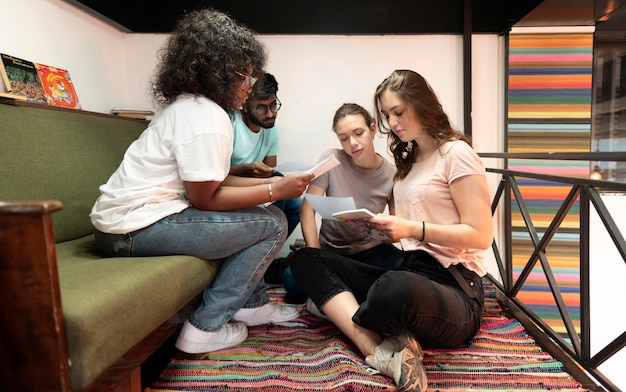How Third-Party Facilitation Enhances Family Communication for Youth
The transition from adolescence to adulthood
The transition from adolescence to adulthood is a pivotal time filled with excitement, challenges, and change.
For many young people, this period involves navigating increased independence, decision-making, and responsibility.
However, this transition can also create tensions within families, as expectations and communication styles often clash.
Effective communication is key to ensuring a smooth transition, and third-party facilitation can serve as a valuable
tool for fostering understanding, resolving conflicts, and strengthening family bonds. This blog explores how youth
transitioning to adulthood can benefit from engaging in open dialogue with their families, with the help of a skilled mediator.
The Challenges of Transitioning to Adulthood
Young adults often face several challenges during this time, including:
- Independence vs. Guidance: Balancing newfound independence with the need for parental advice.
- Conflicting Expectations: Misaligned goals or perspectives between youth and their families.
- Identity Formation: Navigating personal values and beliefs that may differ from family traditions.
These challenges can sometimes lead to misunderstandings, arguments, or strained relationships.
The Role of Effective Communication
Open and respectful communication is the foundation of healthy family relationships. For youth transitioning to adulthood, it allows them to:
- Clarify Expectations: Discussing roles, responsibilities, and boundaries openly can prevent future misunderstandings.
- Foster Empathy: Sharing feelings and perspectives helps both sides better understand each other.
- Strengthen Bonds: Honest conversations can enhance trust and emotional connection.
However, effective communication can be difficult when emotions run high or past conflicts remain unresolved.
How Third-Party Facilitation Helps
Third-party facilitation involves a neutral mediator guiding conversations between family members to ensure a productive and respectful exchange. Here’s how it can help:
- Creating a Safe Space for Dialogue:
A facilitator sets a neutral tone and establishes ground rules, ensuring that everyone feels heard and respected. This safe space encourages participants to share openly without fear of judgment. - Bridging Generational Gaps:
Facilitators help both youth and parents understand each other’s perspectives. For example, a young adult may feel stifled by parental expectations, while parents may worry about their child’s readiness for independence. A facilitator can translate these concerns into constructive dialogue. - Addressing Underlying Issues:
Sometimes, unresolved conflicts or misunderstandings hinder effective communication. A mediator can help identify and address these underlying issues, paving the way for healthier interactions. - Developing Actionable Plans:
Third-party facilitators assist in creating clear, actionable agreements on matters such as:- Financial responsibilities (e.g., rent, tuition, or bills).
- Household expectations (e.g., chores, curfews).
- Decision-making autonomy (e.g., career or educational choices).
These agreements help both parties feel valued and understood.
Benefits for Youth
Engaging in facilitated communication offers several advantages for youth transitioning to adulthood:
- Improved Confidence: Learning to express thoughts and concerns effectively boosts self-esteem.
- Stronger Family Support: Clear communication fosters trust and collaboration, ensuring families remain a strong support system.
- Conflict Resolution Skills: Participating in facilitated dialogue teaches valuable negotiation and conflict management skills that can be applied in other areas of life.
Benefits for Families
Parents and guardians also benefit from third-party facilitation, as it helps them:
- Understand Their Child’s Needs: Gaining insight into their child’s goals and challenges fosters empathy.
- Adapt to Change: Families learn to adjust to their evolving roles and relationships.
- Strengthen Family Unity: Open communication creates a foundation for lifelong connections.
When to Consider Third-Party Facilitation
Third-party facilitation may be particularly helpful in situations such as:
- Disagreements about career or education paths.
- Conflicts over independence or boundaries.
- Struggles to balance family traditions with individual identity.
- Tensions related to finances or shared responsibilities.
Conclusion
Transitioning to adulthood is a transformative time that can be challenging yet rewarding when approached with effective communication. For youth and their families, third-party facilitation offers a structured, neutral platform to address conflicts, foster understanding, and build stronger relationships.
By embracing open dialogue and seeking support when needed, young adults can navigate this phase with confidence, and families can grow closer, creating a solid foundation for the future.
If your family is navigating challenges during this transition, consider engaging with professional mediation services.
AHANSA Legal & Mediation Services offers expert facilitation to guide you through these critical conversations.
Contact us today to learn how we can help strengthen your family connections.


